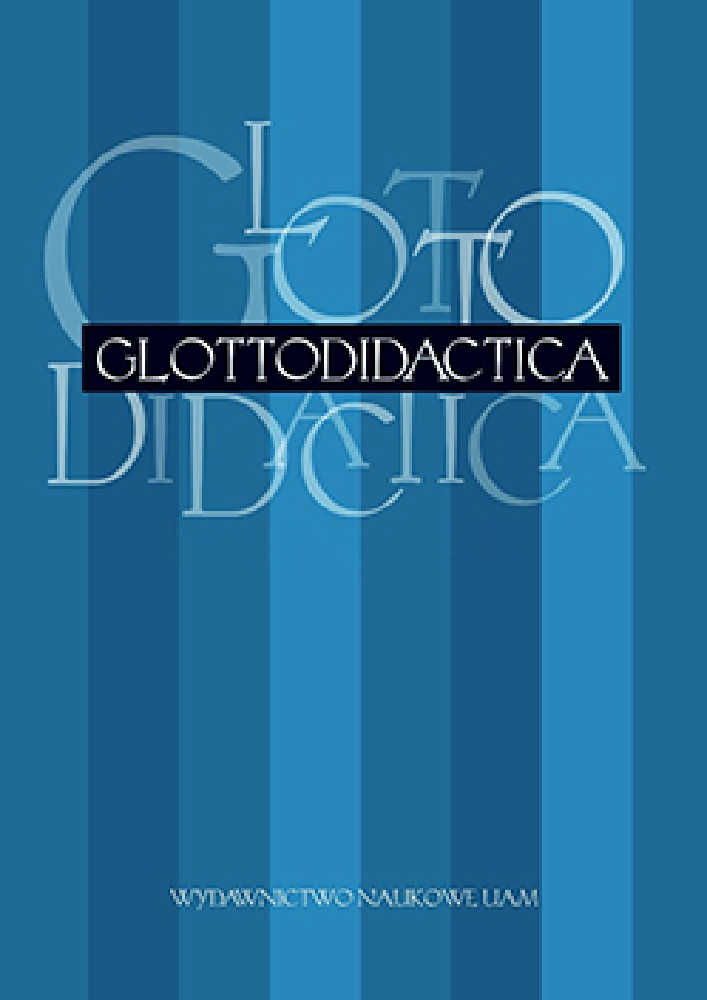Abstract
The structures of a foreign language, presented by a teacher-sender, are received by
a learner as specific signals that are subject to phonetic-phonological and graphic-graphemic decoding. They are accordingly transferred to the foreign-language center, in which semanticgrammatical decoding is performed. Individual structures acquired in this fashion constitute constructive elements of the storage mechanism for learning language in the form of constant structure-matrices. In the process of the receptive-productive dynamization of the language’s structures, the learner simultaneously masters their effectiveness and potential, which make it possible to apply the codified information to current situations. Autonomous forms of learning a foreign language lead to an increase in the reserves of vocabulary and to its more effective application. Independent manipulation of a foreign language in emergent situations means that the learner develops the ability to use it in contacts with communicative partners.
Literaturhinweise
Desselmann, G. / Hellmich, H. (1981). Didaktik des Fremdsprachenunterrichts. Deutschs als Fremdsprache. Leipzig: Verlag Enzyklopädie.
Engel, U. et al. (1999). Deutsch-polnische kontrastive Grammatik. Band 1–2. Heidelbrg: Julius Groos Verlag.
Krüger, M. (1985). Übungsabläufe im kommunikativen Fremdsprachenunterricht. In: G. Neuner / M. Krüger / U. Grewer (Hrsg.). Übungstypologie zum kommunikativen Deutschunterricht. Berlin et al.: Langenscheidt, S. 17–28.
Szczodrowski, M. (2016). Zum Wesen der fremdsprachlichen Einkodierungsprozesse. Glottodidactica. An International Journal of Applied Linguistics, XLIII/1, S. 69–80.
Zabrocki, L. (1972). Zur Theorie der Aufbereitung des Sprachmaterials im Fremdsprachenunterricht. Glottodidactica. An International Journal of Applied Linguistics, VI, S. 3–39.
Zabrocki, L. (1977). Die Entwicklung und Integrierung des Unterrichtsmaterials. In: M. Triesch (Hrsg.). Probleme des Deutschen als Fremdsprache. Forschungsberichte und Diskussionen. Bericht von der 1. Internationalen Deutschlehrertagung 1967 in München. München: Max Hueber Verlag, S. 56–79).
Lizenz
Authors
Authors of texts accepted for publication in Glottodidactica are required to complete, sign and return to the editor's office the Agreement for granting a royalty-free license to works with a commitment to grant a CC sub-license.
Under the agreement, the authors of texts published in Glottodidactica grant the Adam Mickiewicz University in Poznań a non-exclusive, royalty-free license and authorize the use of Attribution-NoDerivatives 4.0 International (CC BY-ND 4.0) Creative Commons sub-license.
The authors retain the right to continue the free disposal of the work.
Users
Interested Internet users are entitled to use works published in Glottodidactica since 2016, under the following conditions:
- attribution - obligation to provide, together with the distributed work, information about the authorship, title, source (link to the original work, DOI) and the license itself.
- no derivatives - the work must be preserved in its original form, without the author's consent it is not possible to distribute the modified work, such as translations, publications, etc.
Copyrights are reserved for all texts published before 2016.
Miscellaneous
Adam Mickiewicz University in Poznań retains the right to magazines as a whole (layout, graphic form, title, cover design, logo etc.).





